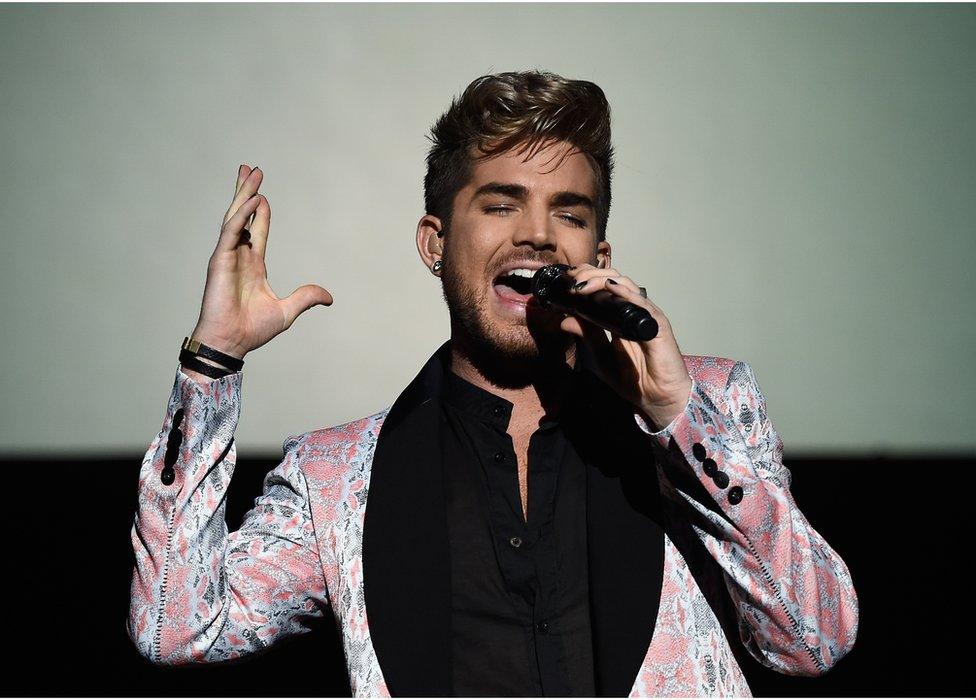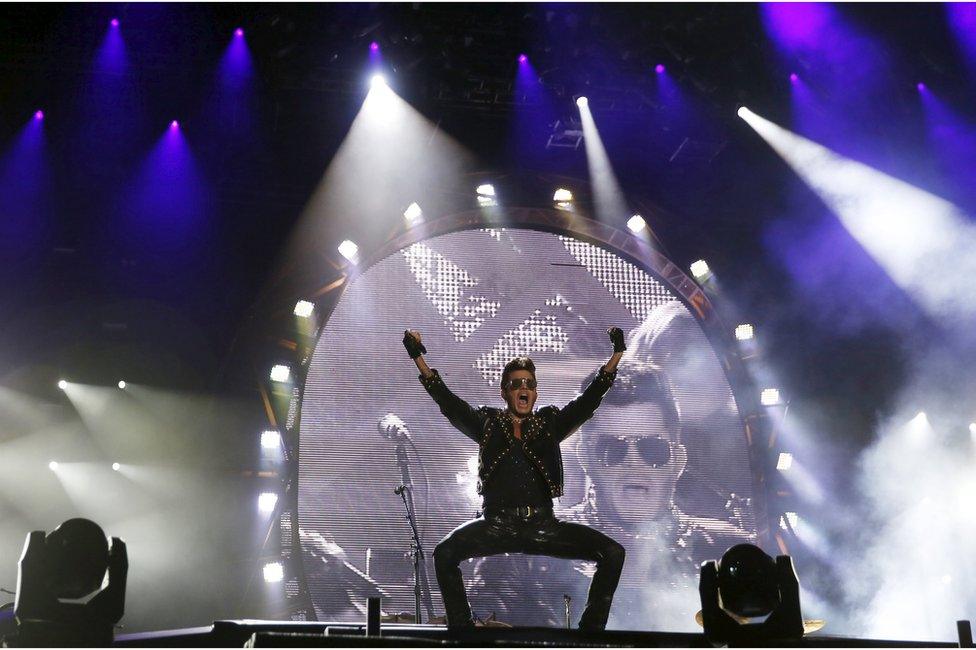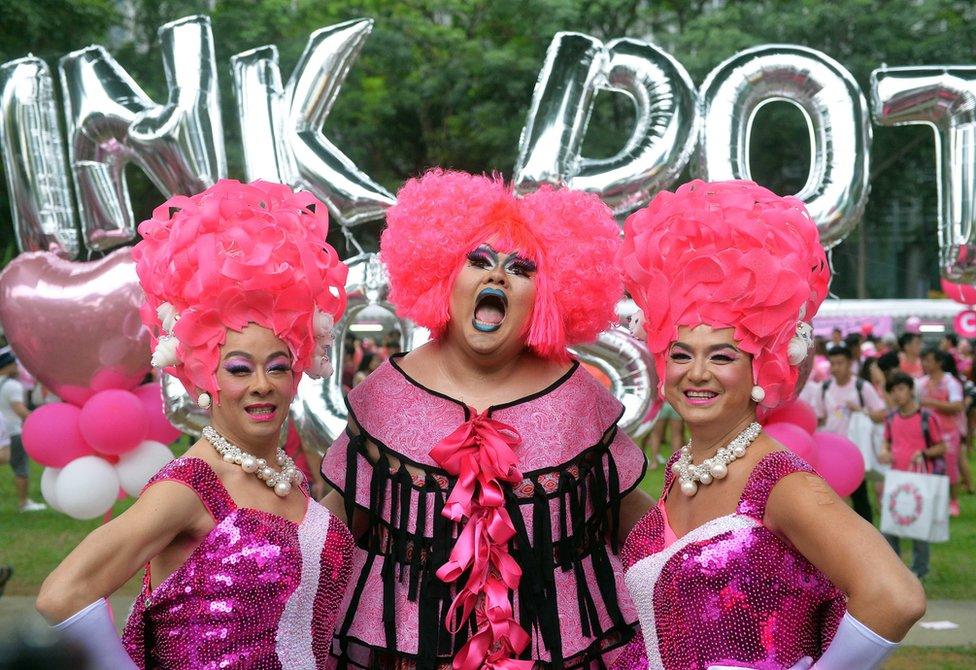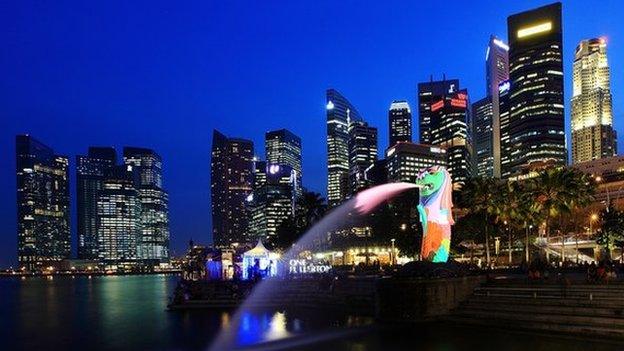Adam Lambert concert sparks Singapore culture debate
- Published

Lambert has previously performed in Singapore to few complaints
A growing controversy over a Singapore concert starring openly gay US singer Adam Lambert has highlighted a widening cultural divide in the strait-laced city-state.
Lambert will be the headline act of a lavish New Year's Eve show organised and televised live nationally by state-owned broadcaster MediaCorp.
Over the course of the week, thousands of Singaporeans have flocked online to sign two duelling petitions.
One, started on Wednesday, calls on MediaCorp and the government to drop Lambert, on account of his support for gay rights and reputation for risque performances, which it called "contrary to mainstream Singaporean values".
Comments on the petition called Lambert's performances "disgusting", "disturbing" and "lewd". "Please give more wholesome role models to our youths," said one petitioner Elaine Lui.

Lambert is known for his flamboyant and energetic performances
A counter petition was started on Thursday night and quickly gathered steam, calling on organisers to keep Lambert as a demonstration that Singapore "shuns discrimination and promotes diverse inclusive points of view".
"In no way whatsoever does his sexual orientation have any relation to his role as an entertainer and singer. Asking for him to be banned on TV is ludicrous and is akin to asking retailers to stop selling iPhones because [Apple has a] gay CEO," said commenter Ivan Lin.
As of Friday evening, both petitions were neck-to-neck with thousands of signatures each, drawing in supporters from Malaysia, Australia, Hong Kong and Japan as well.
Lambert previously performed in Singapore in 2013 to few complaints, and concerts by other artists such as Lady Gaga have generated greater controversy.
Heated debate
The debate over Lambert this time stems from a cultural divide in Singapore that has widened recently.
A modern and open city-state with a thriving gay scene and liberal minority, much of its society also remains deeply conservative. A religious right, supported by some Christians and Muslims, has grown in tandem with a burgeoning gay rights movement.
The annual gay rights event Pink Dot, where supporters don pink as a message of inclusion, has sparked a counter campaign called Wear White where conservatives tog themselves in white as a symbol of purity.

Pink Dot has been held annually in a park in central Singapore where attendees turn up in colourful costumes
Both sides have become more vocal in recent years, and though the conflict has not gone beyond heated debate, it has unnerved Singapore officials charged with maintaining the peace on the tiny island.
They have tried to strike a balance. A controversial law that bans gay sex - a key flashpoint in the divide - remains on the books, but the government has promised never to enforce it.
Authorities have also sought to rein in both camps by curbing their public demonstrations, in some cases refusing permits to both conservative and gay rights groups to hold or expand their public events.
As for Lambert, they appear to have come to a compromise.
MediaCorp has not dropped him - but has promised that the show will conform to strict broadcast regulations and be made "suitable for family audiences".
Meanwhile, Lambert has said in a statement, external that his performance would "celebrate the entire human family in all its diversity" and that he was "a uniter, not a divider".
- Published14 June 2014
